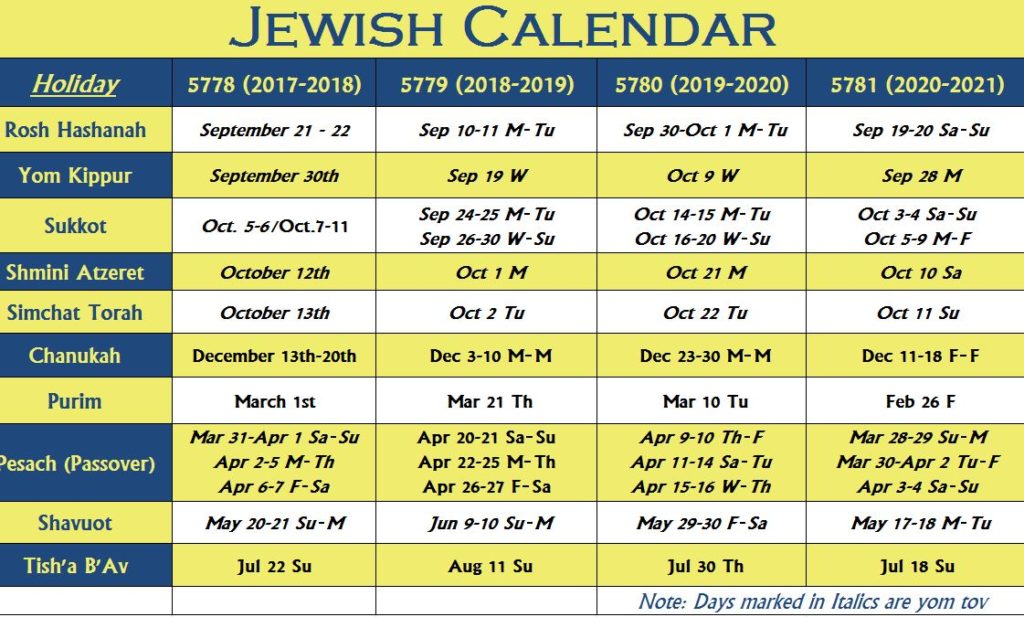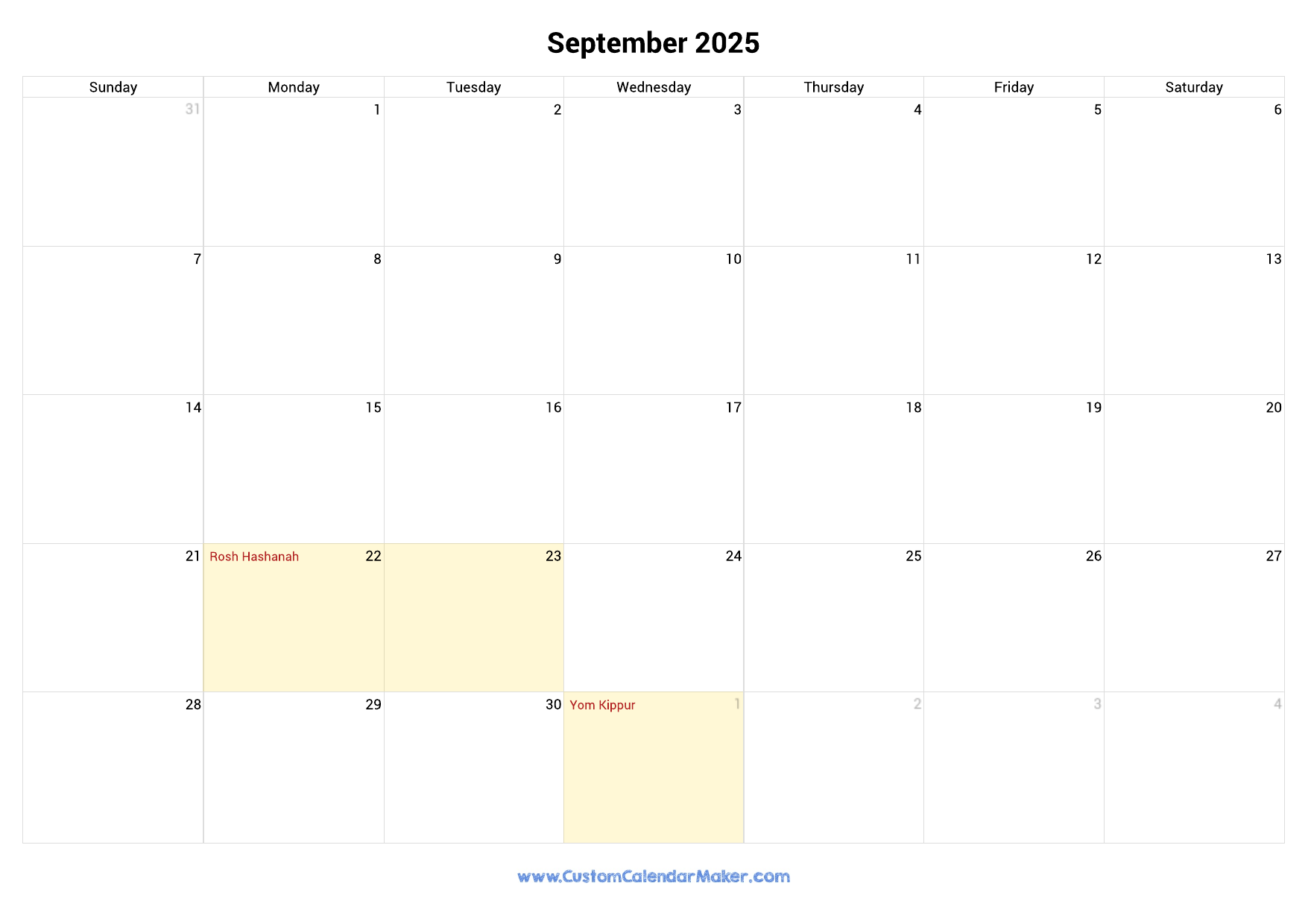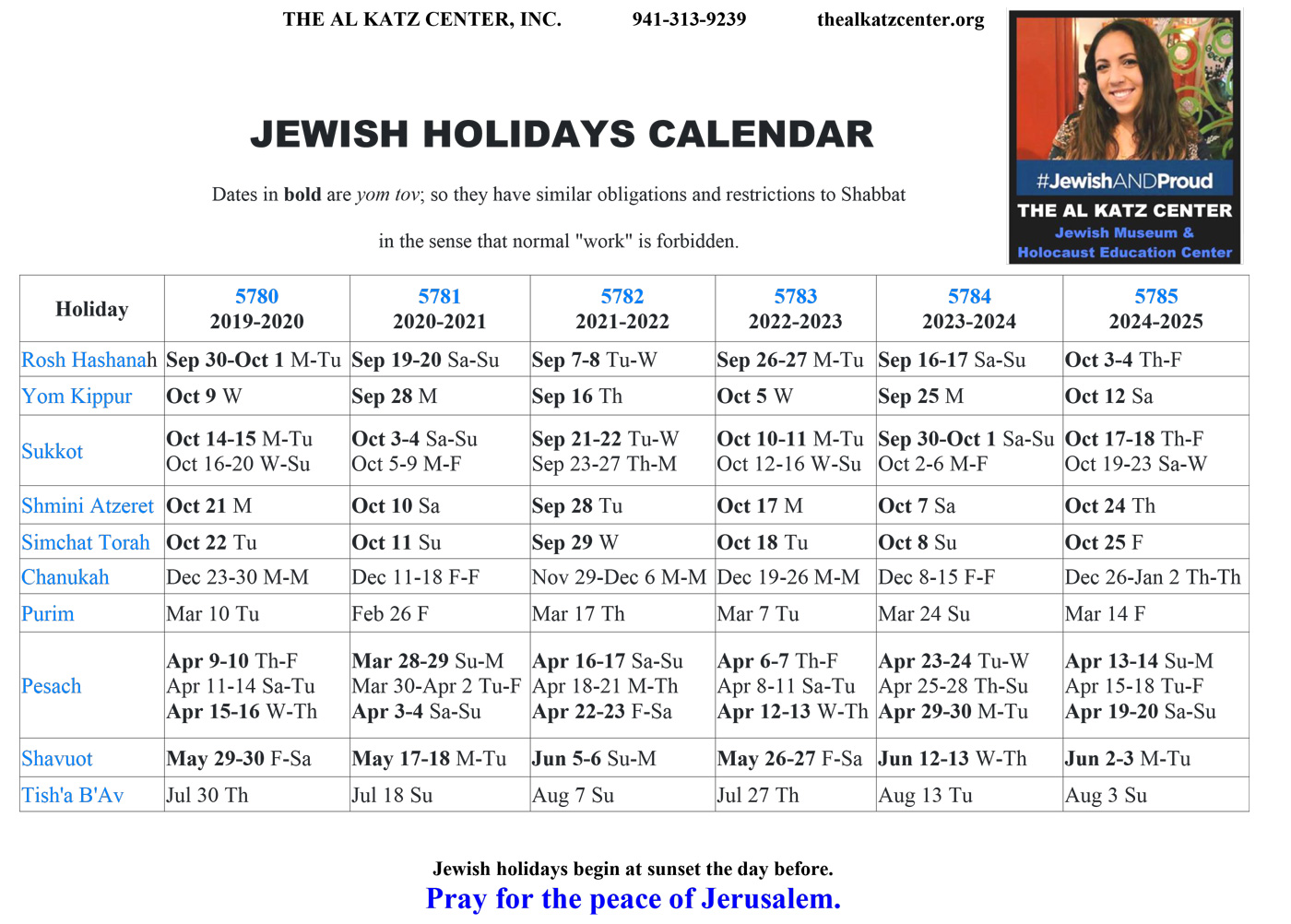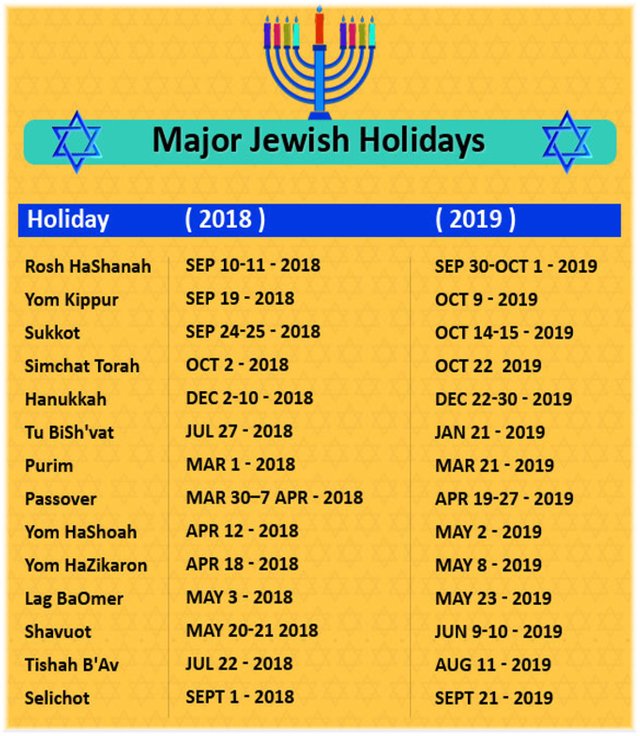Hebrew Calendar 2025 Holidays
Related Articles: Hebrew Calendar 2025 Holidays
- 2025 Indonesian Calendar With Islamic Dates
- Calendario 2025 Semanas: Perencanaan Dan Organisasi Sepanjang Tahun
- 2025 India Calendar With Holidays (PDF)
- Intel Work Week Calendar 2025: A Comprehensive Guide To Planning Your Year
- 2025 Calendar With Holidays USA Printable: Stay Organized And Informed
Introduction
With great pleasure, we will explore the intriguing topic related to Hebrew Calendar 2025 Holidays. Let’s weave interesting information and offer fresh perspectives to the readers.
Table of Content
Video about Hebrew Calendar 2025 Holidays
Hebrew Calendar 2025 Holidays

The Hebrew calendar is a lunisolar calendar used by Jews to determine the dates of religious holidays and festivals. It is based on the cycles of the moon and the sun, and consists of 12 months of 29 or 30 days, with an additional month added every few years to keep the calendar in sync with the solar year.
The Hebrew calendar year 2025 begins on September 7, 2024, and ends on September 24, 2025. The following is a list of the major holidays and festivals that will be observed during this year, along with their corresponding dates on the Gregorian calendar:
- Rosh Hashanah (Jewish New Year): September 7-8, 2024
- Yom Kippur (Day of Atonement): September 16, 2024
- Sukkot (Feast of Tabernacles): September 23-30, 2024
- Simchat Torah (Rejoicing of the Torah): September 30, 2024
- Hanukkah (Festival of Lights): December 19-26, 2024
- Tu B’Shevat (New Year of the Trees): January 19, 2025
- Purim (Festival of Lots): March 7, 2025
- Passover (Festival of Unleavened Bread): April 5-12, 2025
- Shavuot (Festival of Weeks): May 25-26, 2025
- Tisha B’Av (Fast of the Ninth of Av): August 3, 2025
Rosh Hashanah
Rosh Hashanah marks the beginning of the Jewish High Holy Days, a period of introspection and repentance. It is celebrated on the first and second days of the Hebrew month of Tishrei, which typically falls in September or October. The holiday is observed with special prayers, services, and the blowing of the shofar, a ram’s horn.
Yom Kippur
Yom Kippur is the holiest day of the Jewish year. It is a day of fasting, prayer, and atonement. Jews believe that on this day, God judges their actions and determines their fate for the coming year. The holiday is observed with a 25-hour fast and special prayers and services.
Sukkot
Sukkot is a seven-day festival that commemorates the Israelites’ wandering in the desert after their exodus from Egypt. It is celebrated on the 15th day of the Hebrew month of Tishrei, and is observed with the building of temporary huts, or sukkahs, in which Jews eat and sleep during the holiday.
Simchat Torah
Simchat Torah is a one-day festival that marks the completion of the annual cycle of Torah readings. It is celebrated on the eighth day of Sukkot, and is observed with special prayers and services, as well as dancing and singing.
Hanukkah
Hanukkah is an eight-day festival that commemorates the victory of the Maccabees over the Seleucid Greeks and the rededication of the Temple in Jerusalem. It is celebrated on the 25th day of the Hebrew month of Kislev, which typically falls in December or January. The holiday is observed with the lighting of the menorah, a nine-branched candelabra, and the playing of dreidel, a spinning top.
Tu B’Shevat
Tu B’Shevat is a minor holiday that marks the beginning of the new year for trees. It is celebrated on the 15th day of the Hebrew month of Shevat, which typically falls in January or February. The holiday is observed with the planting of trees and the eating of fruits and nuts.
Purim
Purim is a joyous festival that commemorates the deliverance of the Jewish people from a plot to exterminate them in ancient Persia. It is celebrated on the 14th and 15th days of the Hebrew month of Adar, which typically falls in February or March. The holiday is observed with the reading of the Megillah, a scroll that tells the story of Purim, and the eating of hamantaschen, triangular pastries filled with poppy seeds or fruit.
Passover
Passover is a seven-day festival that commemorates the Israelites’ exodus from Egypt. It is celebrated on the 15th day of the Hebrew month of Nisan, which typically falls in March or April. The holiday is observed with a special seder meal, which includes the eating of matzah, unleavened bread, and the telling of the story of the Exodus.
Shavuot
Shavuot is a two-day festival that commemorates the giving of the Torah to the Israelites at Mount Sinai. It is celebrated on the 6th and 7th days of the Hebrew month of Sivan, which typically falls in May or June. The holiday is observed with special prayers and services, as well as the study of the Torah.
Tisha B’Av
Tisha B’Av is a fast day that commemorates a number of tragedies in Jewish history, including the destruction of the First and Second Temples in Jerusalem. It is observed on the 9th day of the Hebrew month of Av, which typically falls in July or August. The holiday is observed with a 25-hour fast and special prayers and services.
The Hebrew calendar is a rich and complex system that has been used by Jews for centuries to determine the dates of religious holidays and festivals. The holidays and festivals listed above are just a few of the many that are observed throughout the year. Each holiday has its own unique traditions and customs, and is an important part of Jewish life.








Closure
Thus, we hope this article has provided valuable insights into Hebrew Calendar 2025 Holidays. We appreciate your attention to our article. See you in our next article!